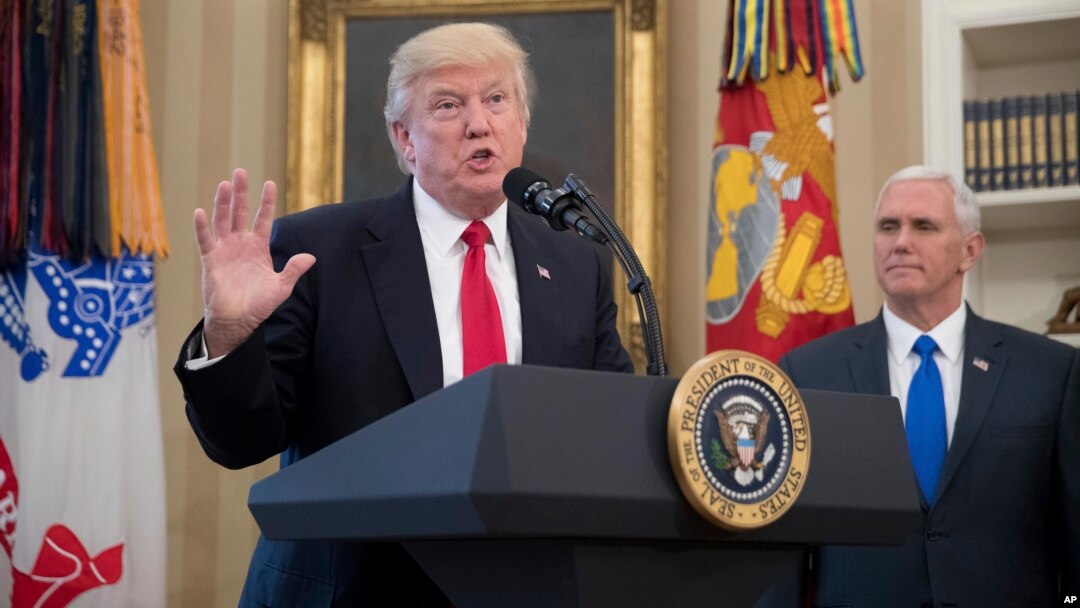President Donald Trump says he is working to help U.S. companies and consumers with new executive orders on trade issues. Friday, he is ordering U.S. officials to study the causes of trade deficits, and step up enforcement of penalties imposed for unfair trade practices.
During the campaign, Trump criticized China's trade policies and the way Washington makes trade deals.
The United States buys over $500 billion more from the rest of the world than it sells to customers overseas. More than half of this trade deficit is with China. Trump's trade orders come about a week before a visit by China's leader Xi Jinping where trade issues are expected to be an important part of the agenda.
The U.S. Commerce Department and the Trade Representative are supposed to report their findings on the causes of trade defects to the president in three months. The country-by-country study of the causes of trade deficits could be the basis of trade actions in the future.
Administration officials say some trade deficits happen because other nations create products that can't be made or made as well in the United States. In other cases, unfair practices are to blame.
Watch: Trump Turns Up Heat on International Trade
Washington says the trade deficit with China was $347 billion last year, with both imports and exports down a bit from prior years. U.S. officials have long accused Chinese companies of stealing trade secrets, counterfeiting movies, and subsidizing certain producers that allow them to sell products at unfairly low prices. Unfairly selling products below the real cost of production to drive competitors out of business is called “dumping.”
One of Trump's executive orders puts more pressure on the collection of the financial penalties for dumping designed to abate China's unfair price advantage and protect U.S. companies.





